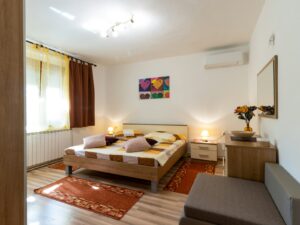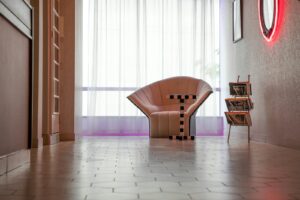When it comes to finishing basements, homeowners often encounter a unique set of challenges, with flooring being a primary concern. Basements are notorious for moisture issues, making it difficult to find a flooring solution that is both durable and aesthetically pleasing. Among the myriad of options available, hardwood flooring stands out as an attractive choice, offering timeless elegance and warmth.
Choosing the right type of hardwood flooring for basements involves considering factors like moisture resistance, durability, and installation methods. Engineered hardwood flooring is often recommended for basements due to its superior resistance to moisture and stability in fluctuating humidity levels.
Unlike solid hardwood, engineered hardwood is constructed with layers of real wood veneer bonded together with adhesives, making it less susceptible to warping or cupping when exposed to moisture.
Engineered wood flooring
Engineered hardwood flooring is an excellent choice for basements due to its unique construction and ability to withstand moisture-related challenges. Here’s why you should consider using engineered hardwood for your basement:
Engineered hardwood is specifically designed to resist moisture better than solid hardwood. Its layered construction includes a top layer of real hardwood veneer bonded to multiple layers of plywood or high-density fiberboard (HDF). This design minimizes the risk of warping, cupping, and swelling caused by moisture, making it more suitable for basement environments prone to humidity and occasional dampness.
The cross-layered structure of engineered hardwood provides enhanced stability compared to solid hardwood. This stability helps prevent the expansion and contraction of the flooring material, reducing the risk of gaps or buckling, especially in environments with fluctuating humidity levels like basements.
Engineered hardwood can be installed in various ways, including floating installations, glue-down methods, or nail-down techniques. This versatility allows for easier adaptation to different subfloor conditions commonly found in basements, such as concrete slabs or uneven surfaces.
Engineered hardwood is generally more durable and resistant to scratches, dents, and wear compared to other flooring options like laminate or vinyl. The protective top layer of real wood veneer adds to its longevity, ensuring that your basement flooring maintains its beauty and integrity for years to come.
Waterproof vinyl flooring
Waterproof vinyl flooring is another excellent option for basement flooring, offering several advantages over traditional hardwood or even engineered hardwood. Here’s why waterproof vinyl flooring is a compelling choice for basements:
As the name suggests, waterproof vinyl flooring is impervious to water, making it highly resistant to moisture damage. Unlike hardwood or engineered hardwood, which can suffer from warping or swelling when exposed to moisture, waterproof vinyl flooring can withstand water spills, leaks, and even occasional flooding without damage.
Vinyl flooring is known for its durability and resilience in high-traffic areas, making it well-suited for basement spaces that may see frequent use. It is resistant to scratches, dents, and stains, making it an ideal option for households with children, pets, or heavy foot traffic.
Waterproof vinyl flooring is effortless to maintain, requiring only regular sweeping and occasional mopping to keep it clean. Unlike hardwood, it does not require refinishing or special treatments to preserve its appearance, saving time and effort in maintenance.
Waterproof vinyl flooring comes in a wide range of styles, colors, and patterns, including options that mimic the look of natural hardwood, stone, or tile. This versatility allows you to achieve the desired aesthetic for your basement without sacrificing performance or breaking the budget.
Unlike cold and hard surfaces like tile or concrete, vinyl flooring provides a softer and warmer feel underfoot, enhancing comfort in basement living areas. Additionally, some vinyl flooring options feature built-in underlayment or padding for added cushioning and noise reduction.
Most waterproof vinyl flooring products are designed for easy installation, with options for floating, glue-down, or click-lock installation methods. This makes it a DIY-friendly choice for homeowners looking to tackle basement renovation projects themselves.
Read More
Best Hardwood Flooring For High-Traffic Areas?
Underlay for Solid Wood Flooring on Concrete
Which is Quiter Vinyl, Carpet, Hardwood, Or Laminate flooring





